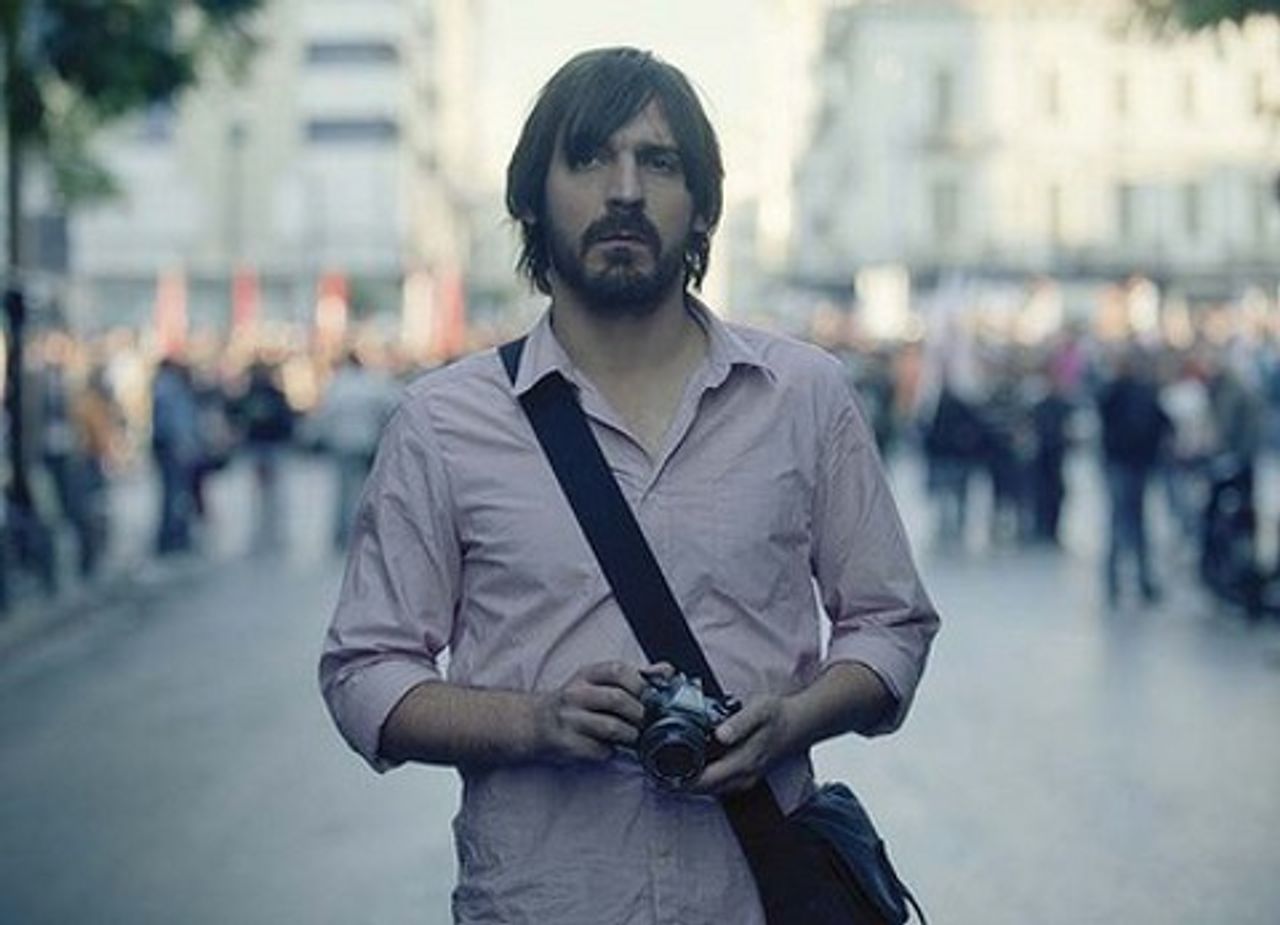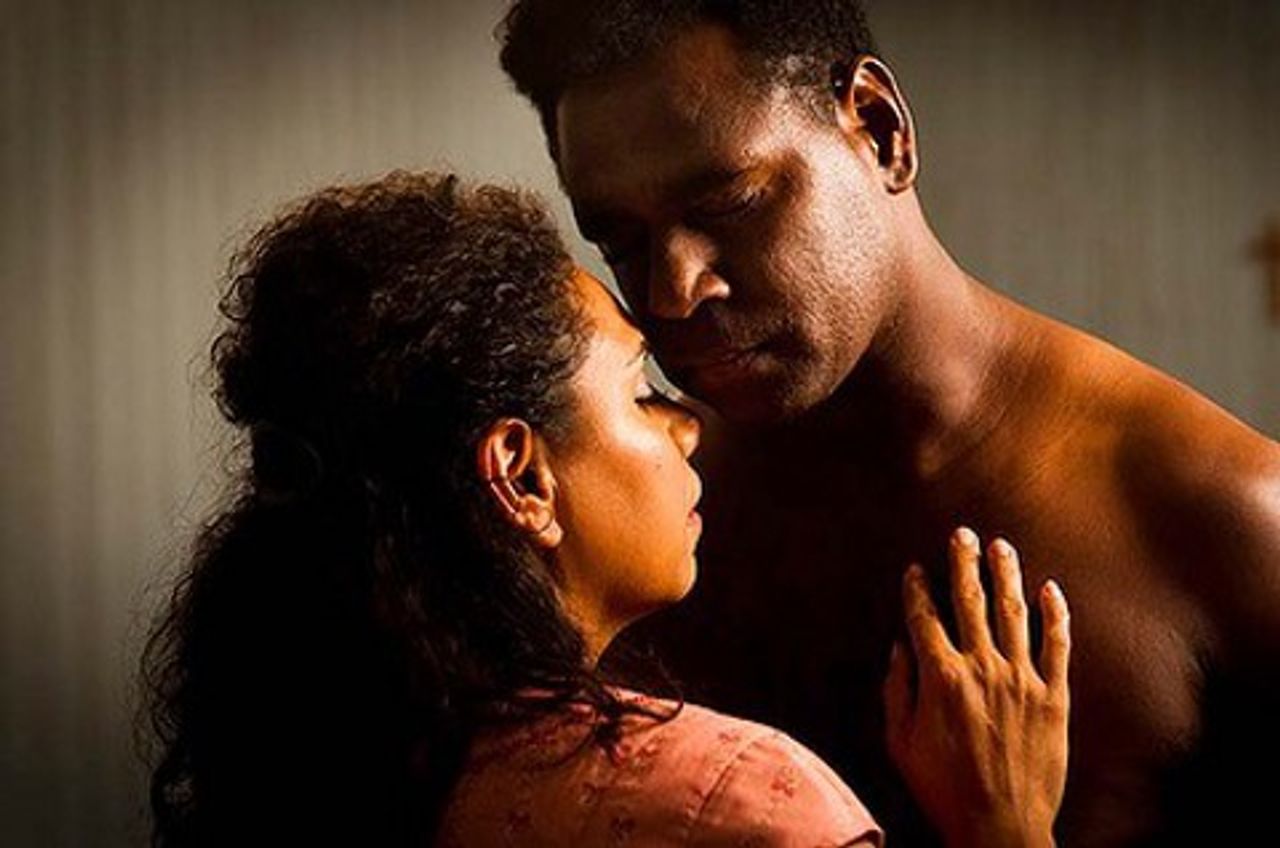This is the fifth in a series of articles on the recent Sydney Film Festival. See part 1, 2, 3 and 4.
Two of the more widely publicised Australian features that premiered at this year’s Sydney film festival were Dead Europe and Mabo. Both films are weak. The first presents a demoralised, unreal view of life while the second distorts reality in line with a retrogressive political agenda.
Speaking with the SBS television network, director Tony Krawitz said that he decided to adapt Australian author Christos Tsiolkas’s best-selling 2005 novel Dead Europe because he wanted to explore the questions of anti-Semitism in contemporary Europe.
“I’m Jewish and my heritage is European,” he said. “My grandparents on both sides left Lithuania and Germany because of persecution and [Tsiolkas’s] book is partly about anti-Semitism… It also is a very realist story. I’m very attracted to social realism and documentary… [and to] actually come to grips with Europe.”
 Dead Europe
Dead EuropeKrawitz’s film adaptation, like the novel itself, however, barely scratches the surface of its chosen subject matter, let alone does it “come to grips with Europe.”
Isaac (Ewen Leslie), a gay photographer in Melbourne of Greek background, is preparing to travel to Europe. His father Vassily (William Zappa), a former Communist Party member, urges him not to go to Greece. Isaac’s mother fears that the trip will revive a family curse stemming from the murder of Elias, a young Jewish refugee left in Vassily’s care during World War II. Vassily is so distressed about his son’s plans that he commits suicide.
Isaac rejects his mother’s wish for a Greek orthodox funeral for his father, and undaunted decides to visit Europe where he plans to hold a photography exhibition, scatter his father’s ashes from a Greek remote mountaintop, and hopefully learn more about his family and the supposed curse.
Europe, according to the film’s depictions, is dominated by a pervasive seediness from which it is futile or impossible to escape, much less change. Criminal activity, racism, superstition and religious bigotry appear to dominate unchallenged in Greece, Paris and Budapest where Isaac travels through what appears to be Europe’s social underbelly.
There are scenes of young drug addicts huddled in train stations and gay pimps peddling youth to depraved businessmen. Much of the film is incoherent and the ghostly reappearances of the murdered Jewish youth as Isaac travels through Europe are silly and unconvincing.
There is no doubt about Krawitz’s technical skills. His first feature, Jewboy (2005), about a young man’s increasing alienation from his family and tradition in a contemporary Chadissic community in Sydney, is an intelligent work. The Tall Man (2011), the director’s recent documentary about the death in Queensland police custody of 36-year-old Aborigine Cameron Doomadgee on Palm Island, is a valuable but limited exposure of entrenched racist oppression. (See: “Probing a prisoner’s death on Australia’s Palm Island”)
The problem with Krawitz’s Dead Europe lies in its uncritical embrace of Tsiolkas’s novel and its demoralised portrayal of a European working class supposedly dominated by political apathy or racism and anti-Semitism following the collapse of the Soviet Union and the Stalinist regimes in Eastern Europe. As the WSWS review of Tsioklas’s novel stated in 2005: “The author believes in a Europe that is monolithically bleak and beyond redemption, and he has constructed characters and situations that conform to this idea.” (See: “Writing off Europe”)
Another promotion of the land-rights myth
Mabo is about Eddie “Koiki” Mabo, a Torres Strait Islander whose lengthy struggle for Aboriginal land rights culminated in a High Court ruling that overturned the terra nullius legal doctrine and officially recognised native title claims to land by indigenous Australians. Terra nullius had been used for about two hundred years to justify dispossession of the indigenous population under the claim that prior to British settlement all territory in Australia and its surrounding islands was “land belonging to no one.” Mabo contracted cancer and died in January 1992, aged 55, five months before the court decision.
Written by Sue Smith and directed by Rachel Perkins, the ABC-TV production traces Mabo’s banishment from his Murray Island home in Torres Strait to the Australian mainland by government authorities in the late 1950s, and his subsequent politicisation as a railway worker, trawler man and trade unionist during the 1960s.
The story dramatises Mabo’s determination to secure basic democratic rights and better social conditions for indigenous Australia. Much of the film centres on the long and loving relationship between Mabo (Jimi Bani) and his wife Bonita (Debra Mailman).
 Mabo
MaboWhile Mailman and Bani share an onscreen rapport and Mabo is accurately presented as a personable, strong-willed and principled man, Perkin’s movie is a glossy, superficial work and based on a political lie—that the Mabo ruling represented a historic victory for Australia’s indigenous population.
The film’s last few minutes include audio of the then Labor Prime Minister Paul Keating falsely claiming that the ruling constituted “a historic turning point” that could be made “the basis of a new relationship between indigenous and non-Aboriginal Australians.”
The Mabo ruling resolved nothing for ordinary Aborigines. Its purpose was to establish a legal mechanism so that mining and other industries could avoid protracted legal challenges by negotiating lucrative deals with Aboriginal tribal leaders. This was the “new relationship” trumpeted by Keating and one that saw the enrichment of a small group of Aboriginal entrepreneurs and associated middle class layers who have personally benefitted from the ongoing exploitation.
Twenty years after the Mabo ruling the overwhelming majority of indigenous Australians live in dire poverty, suffering higher mortality rates, unemployment, poverty, incarceration, drug and alcohol abuse and violence at scandalously higher rates than the non-indigenous population.
Mabo leaves many key issues unexplored and is totally reverential in its portrayal of the High Court proceedings. The movie makes only a passing reference to Mabo’s loose association with the Communist Party of Australia (CPA) during 1950s and early 60s—a key factor in his political development. The film’s second half focuses on Mabo’s personal relationship with Labor Party ministers, academics and lawyers in the protracted legal battles for land rights.
Mabo initially regarded himself as a member of the working class and drifted towards the CPA and then the Labor Party. But these organisations diverted him and hundreds of other militant indigenous workers into the “land rights” movement and away from the necessity for a unified movement of all workers against the profit system, the source of racialist oppression.
Rather than an artistically convincing and complex portrait of Mabo—the man and his political and personal evolution—Perkins and Smith have produced a hagiography that promotes illusions in the High Court ruling and fails to acknowledge the ongoing and escalating social catastrophe still confronting thousands of indigenous Australians.
To be continued
